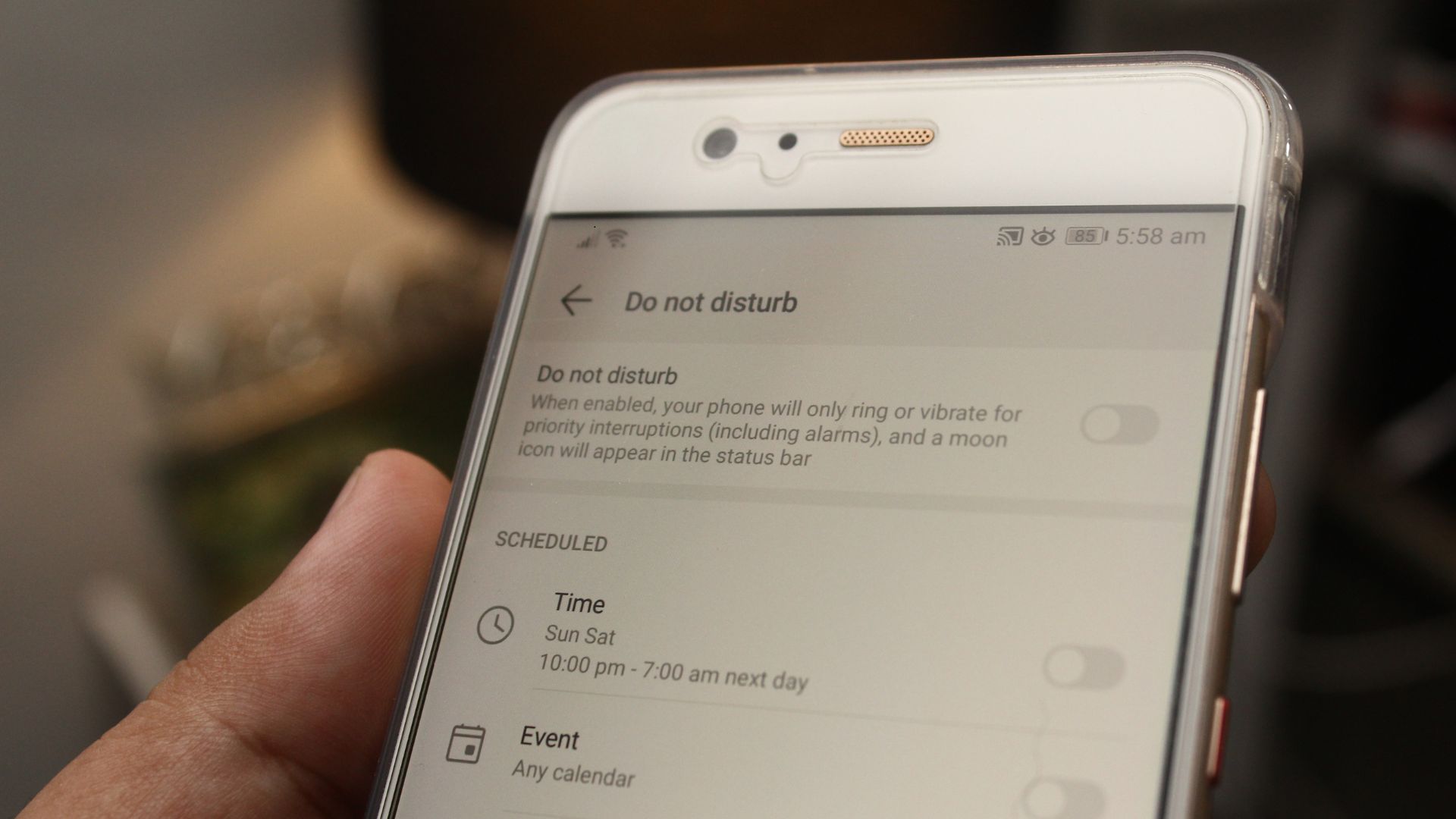The COVID-19 pandemic forced many industries to quickly adapt their working conditions during long periods of isolation and quarantine. With more and more people working from home, the boundaries between home life and work life became blurred, leading to increased rates of burnout as professionals started to feel that they were never truly “off the clock”.
While a return to office has since become the reality for many industries, the culture of eternally accessible employees has not returned to pre-COVID expectations. Instead, employees feel that their work now follows them home from the office and is there again as soon as they wake up.
Something had to be done, and on 26 August 2024, the Right to Disconnect law was put into full effect for all non-small businesses (those with more than 15 employees). For small business employers (those employing fewer than 15 employees), the Right to Disconnect comes into full effect on 26 August 2025.
As an employer or employee, this new legislation is important to understand, as it provides legal protections for employees outside working hours and penalises workplaces that attempt to ignore or circumvent these protections.
What is the Right to Disconnect Legislation?

According to the Fair Work Ombudsman, the Right to Disconnect states that employees in Australia “have the right to refuse to monitor, read or respond to contact (or attempted contact) outside their working hours, unless doing so is unreasonable.”
This does not prevent employers from contacting employees; instead, it protects employees from retaliation or punishment for not answering calls, responding to emails, or acknowledging communications if they come through outside their working hours.
In Australia, discussions around work-life balance and mental health in the workplace have prompted a cultural and legislative overhaul of workers’ rights. Increased rates of burnout and mental health concerns mean that a clearer line between our work lives and personal lives is more important than ever.
Who Does the Right to Disconnect Apply To?
The Right to Disconnect applies to both the private sector (e.g. technology, finance, or consulting) and the public sector (e.g. government services). This is particularly important for remote or hybrid workers, where lines can be blurred if working hours change or fluctuate throughout the week.
Clear lines of communication, including a designated roster, may be put in place between employer and employee to manage expectations for when work communication is and is not appropriate. This can also apply to an employee’s personal circumstances, including family or caring responsibilities during what may be the employee’s ordinary hours.
As long as expectations are clearly laid out, no disciplinary or other action may be taken for a refusal to acknowledge or reply to work-related contact, unless the employee’s refusal is unreasonable.
So, what makes refusing contact unreasonable?
Key Provisions and Legal Requirements
An employee’s refusal is unreasonable when being accessible outside the employee’s working hours is part of the employee’s role.
In certain industries, such as in public health, the emergency services, and other critical sectors, roles designated to be “on-call” may be exempt. However, on-call roles must be financially compensated by law, and it is expected that being accessible is an understood and accepted part of the employee’s role.
Further provisions, such as pre-agreed arrangements or designated emergencies, can circumvent the Right to Disconnect. This may include employees being on-call for client support, for senior or managerial roles where important decisions may need to be made around the clock.

Exemptions may also apply in the case of emergencies in the workplace, where certain staff, such as specialised technicians, may need to be contacted to perform work for additional hours outside their regular scope.
However, what all these scenarios have in common is that they are understood aspects of the role and should be included in the organisation’s enterprise agreements. Penalties for non-compliance can be severe, with fines up to $18,780 for an individual or $93,900 for a body corporate per contravention.
Again, it is worth reminding that the Right to Disconnect does not prevent employers from contacting their employees. The above penalties are in place to protect employees from adverse action, coercion and more for refusing contact or attempted contact outside their ordinary hours.
Implications for Employers and HR Managers
Employers and HR managers should review their policies and employment contracts to ensure adherence to this new legislation. Training and implementation strategies, especially for supervisors, line managers, and direct reports, should be a priority, especially in workplace cultures where team accessibility has previously blurred work-life boundaries.
There are several tools that employers can use in their internal systems (e.g. auto-responders, scheduling tools) to ensure accurate employee coverage and prevent the need to contact employees outside their working hours.
Employee Rights and Expectations
Employees can invoke the right to disconnect by stating the legislation and reporting persistent out-of-hours communication to their HR department or management. They should check their employee contracts and enterprise agreements to see what Right to Disconnect provisions have been implemented. If overwork is becoming an issue to the point of becoming a workplace health and safety (WHS) issue, employees can also report it to a Health and Safety Representative (HSR).
Overall, it is important to remember that this legislation is designed to help everyone. Employers, including managers and supervisors, are not exempt from the human need to maintain a healthy work-life balance, and a balanced and compassionate culture should be fostered in every workplace.
Practical Examples of the Legislation in Action
Let’s look at some examples of where employer contact is considered unreasonable:
Sick leave
Sarah is at home on approved sick leave, recovering from a viral illness. During this time, her manager sends her multiple emails, texts, and tries to call her about a client she is managing. Unless it is an emergency or Sarah is the only one with critical knowledge, this contact is unreasonable. Sick leave is protected under the Fair Work Act and must be respected. Of course, Sarah has the right to inform her manager that she is open to limited contact while she recovers, in which case, contact is reasonable.
Weekends
Tony’s regular hours are 9 am to 5 pm from Monday to Friday. He receives an email at 9 pm Friday night, and his boss calls him the next morning to follow up. This is considered unreasonable, especially if it is a repeated pattern or interrupts Tony’s ability to rest and relax. If the email is not an emergency, it should be expected that Tony will read and reply when he is next in office (Monday morning).

How to Prepare Your Workplace
Prepare your workplace by crafting a checklist for compliance, ensuring that everyone from senior managers to junior employees knows their rights and responsibilities regarding Fair Work.
If you have provisions or anticipate needing to contact employees outside of regular work time, seek legal consultation to ensure that all workplace communication and requirements are in place to adhere to the Right to Disconnect legislation.
Remember, penalties now apply for disciplinary action, coercion, or otherwise negative effects imposed on an employee who does not reply, engage, or action communication outside their regular working hours. If an employee is okay with being contacted out of hours, that’s fine, so long as all parties agree on the expectations of the role.
The most important thing is to establish clear lines of communication between the employer and employee, including expectations regarding work-related communications and the maintenance of work-life balance.
Want to Learn More? Speak With the Management Experts
If you would like to learn more about how the Right to Disconnect affects your workplace or how to improve your processes and employee management, get in touch with the friendly and expert team at Priority Management.
Our management courses in Energy Management and Project Management are perfect for workplaces looking to streamline their processes, improve efficiency during working hours, and optimise work so that it balances harmoniously with life. Reach out today to learn how our courses can help your workplace, whether you’re a small business or corporation and in whatever industry you’re in.
Frequently Asked Questions
Can I still message my team after hours?
You can, but an employee may choose to ignore or delay a reply until their next work day. Civil penalties apply for retaliation against employees who choose to ignore messages, emails, or calls outside of their normal hours.
What if there’s an emergency?
If it is an emergency, such as emergency roster changes, a technical outage, or other time-sensitive incident, then employees may be contacted. However, these circumstances should be communicated as possibilities to employees before they occur and become an agreed upon circumstance for out-of-hours communication.
Does it apply to casual or part-time workers?
Yes, all Australian employees, even casual or part-time workers are protected.
